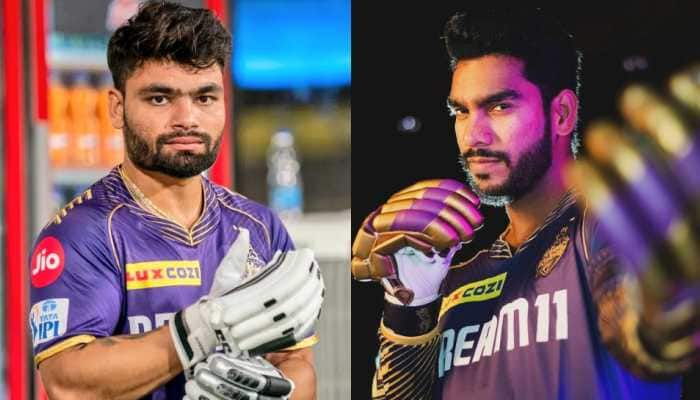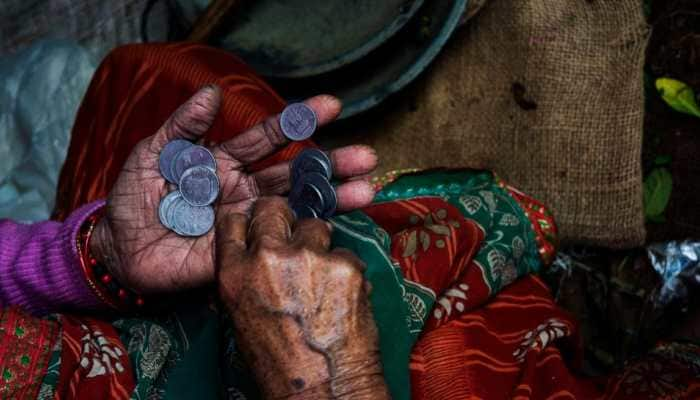What Were Three Big Questions Asked To Gautam Gambhir During Interview For Team India's Head Coach Position?
Gambhir has always been a proponent of split captaincy, believing it could alleviate the immense pressure on a single individual and allow for more specialized leadership.
Trending Photos
)
In the cricketing circles, the anticipation is palpable as the Board of Control for Cricket in India (BCCI) inches closer to announcing Team India's new head coach. Among the prominent candidates, Gautam Gambhir has emerged as a front-runner, known for his tactical acumen and leadership qualities that once led Kolkata Knight Riders (KKR) to Indian Premier League (IPL) glory. Recently, Gambhir faced the Cricket Advisory Committee (CAC) in a virtual interview, where he was asked three critical questions. Here’s an in-depth look at these queries and Gambhir’s responses.
Also Read: Who Is Kylian Mbappe's Girlfriend Stephanie Rose Bertram - In Pics
The Coaching Staff Vision: Building a Cohesive Unit
Question 1: What are your ideas regarding the coaching staff of the team?
Gambhir emphasized the importance of a well-rounded coaching staff, highlighting the necessity of a mix of experienced and innovative minds. He proposed bringing in specialized coaches for batting, bowling, and fielding, ensuring each department receives focused attention. His approach is to blend traditional coaching techniques with modern analytics, utilizing data-driven strategies to enhance player performance.
By advocating for a holistic coaching framework, Gambhir aims to foster a supportive environment where players can thrive. This vision not only addresses the technical aspects of the game but also focuses on the mental well-being of the players, a critical component in today’s high-pressure cricketing world.
Managing the Transition Phase: Navigating Aging Stars
Question 2: With a few aging players in both the batting and bowling departments, how will you handle the transition phase?
Gambhir’s response to handling the transition phase was both pragmatic and forward-thinking. He acknowledged the contributions of the veteran players while stressing the importance of grooming the next generation. His strategy involves a phased transition, where young talents are gradually introduced to the international stage under the mentorship of seasoned players.
This balanced approach aims to maintain team stability and performance while ensuring that the future stars are adequately prepared. Gambhir’s experience in the IPL, where he successfully managed a diverse squad, gives credence to his capability to handle such transitions effectively.
Split Captaincy and Fitness Regimens: A Modern Approach
Question 3: What are your views on split captaincy, fitness parameters concerning workload management, and addressing the team's failure to win ICC trophies?
Gambhir has always been a proponent of split captaincy, believing it could alleviate the immense pressure on a single individual and allow for more specialized leadership. He envisions separate captains for white-ball and red-ball formats, arguing that this would enable more focused strategies and better manage players' workloads.
On the fitness front, Gambhir underscored the significance of personalized fitness plans tailored to individual needs. He proposed regular fitness assessments and bespoke training regimens to ensure players are at their peak physical condition, thereby reducing the risk of injuries and enhancing overall team performance.
The Road Ahead: Gambhir’s Potential Impact
Gambhir's responses reflect a deep understanding of the nuances of modern cricket. His emphasis on strategic planning, player development, and innovative coaching techniques positions him as a forward-thinking candidate for the head coach role. His experience with KKR in the IPL, where he showcased exceptional leadership and tactical prowess, further strengthens his candidacy.
Stay informed on all the latest news, real-time breaking news updates, and follow all the important headlines in india news and world News on Zee News.
Live Tv







)
)
)
)
)
)
)
)
)
)
